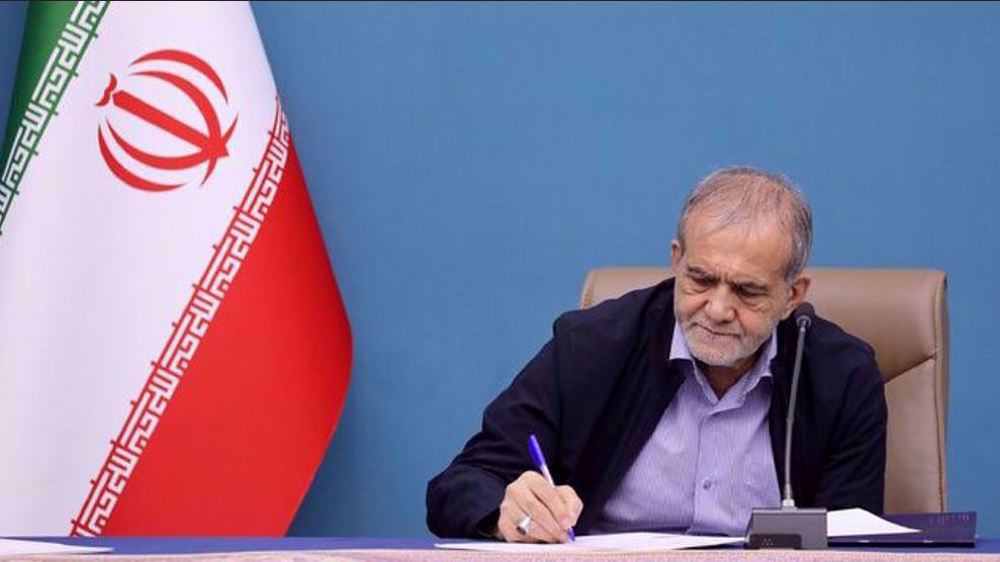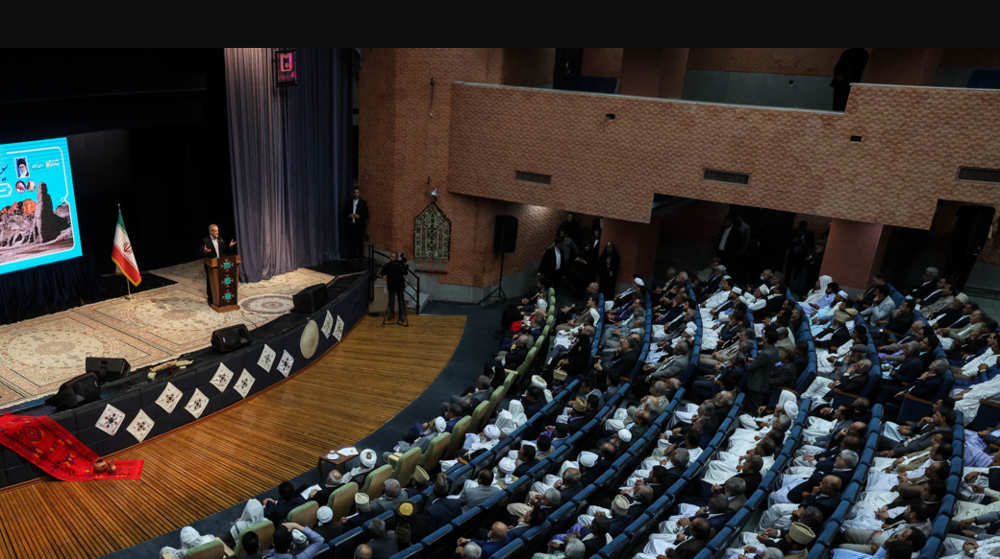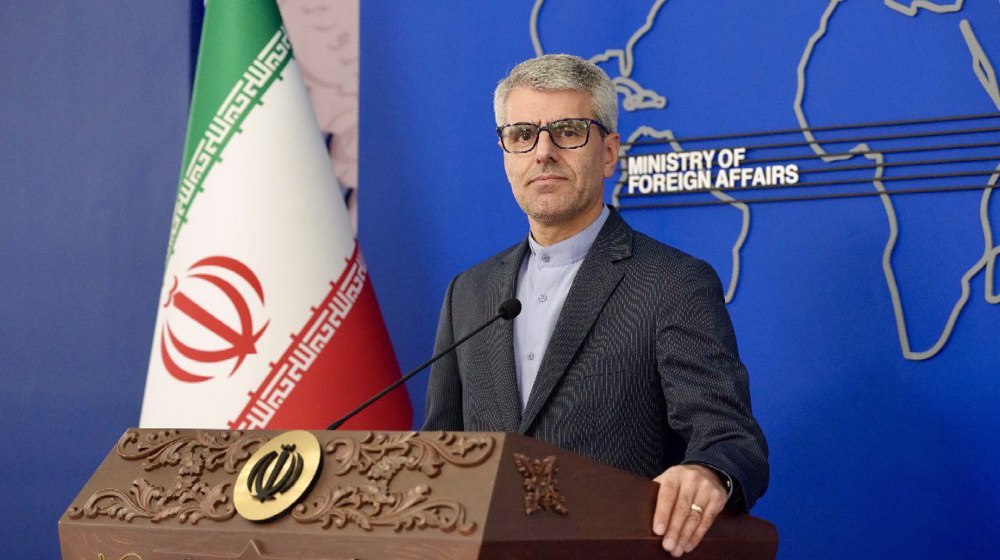Iraq reaffirms won’t cooperate with US on Iran sanctions
Iraqi Prime Minister Adil Abdul-Mahdi says his country will not be part of the regime of US sanctions against Iran, and that is Baghdad’s clear and declared policy.
The premier made the remarks in a Thursday meeting with the ambassadors of the UK, Germany, and France to Baghdad.
“Iraq seeks to have relations and cooperation with all its neighbors, Arab countries, and all other states in the region and the world including the US and Iran,” he said.
“Iraq’s relations play a key role in reinforcing security and stability as well as the economic prosperity of the region and the world … and its balanced ties have positively affected its internal stability,” the Iraqi prime minister said
Abdul-Mahdi stressed that Iraq’s decision not to be part of the US’ sanctions against Iran is a pillar of this balanced policy.
Leader of the Iraq’s National Wisdom Movement, Ammar al-Hakim, also told US Assistant Secretary of State David Satterfield that the Arab country will not turn into a base for aggression against other countries.
“Iraq is trying to reinforce stability in the region and remain neutral and independent in its decisions, and thus does not allow its territory to be used for aggression against other states,” he said.
The comments came after US Secretary of State Mike Pompeo scrapped a visit to Germany on Tuesday to make an unannounced trip to Iraq, pressing Iraqi leaders about what he called the increased dangers to Americans there from Iran’s forces and allies.
Pompeo said he also used the four-hour visit to Iraq to discuss "big energy deals that can disconnect them from Iranian energy."
Iraq's Electricity Minister Luay al-Khateeb said Monday his country had brushed aside US demands that Baghdad stop gas and power imports from neighboring Iran.
Khateeb did not say whether the Americans had made the demand after ending waivers for exports of crude oil from Iran this month.
US pressures on Iraq to wean itself off Iran has become a major point of conflict between Washington and Baghdad. A lightening rod in their spat is Iraq’s reliance on Iranian gas imports to generate electricity consumed daily in the country.
Washington is pressing Baghdad to source them from other countries or develop its own energy self-sufficiency. Iraqi leaders say the country cannot stop Iranian gas imports without serious electricity shortages.
Russia, Turkey defy US sanctions on Iran
Russia meanwhile urged the international community to continue trade with Iran despite US sanctions, the Foreign Ministry said Thursday.
In a statement published on its official website, the ministry condemned US withdrawal from the Iran nuclear deal as well as pressure tactics by Washington on other countries to stop trade with Iran.
The ministry stressed that Iran "scrupulously" carries out its obligations under the deal and its decision to suspend it partially is a last-ditch stand.
Read more:
Russia called all signatories of the deal, including Iran, to refrain from further actions to put the agreement under threat.
Turkish Foreign Minister Mevlut Cavusoglu has lashed out at the US sanctions, saying they do not just harm Iran, but are detrimental to the entire region.
In its latest anti-Iran measure, US President Donald Trump issued an executive order to impose new sanctions on Iran to deny it of revenue from exports in the metal and mining sectors.
"Today's action targets Iran's revenue from the export of industrial metals -- 10 percent of its export economy -- and puts other nations on notice that allowing Iranian steel and other metals into your ports will no longer be tolerated," Trump said in a statement Wednesday.
"Tehran can expect further actions unless it fundamentally alters its conduct."
Russia to continue nuclear cooperation with Iran
Russian state nuclear corporation Rosatom announced that its project to build nuclear power units at Iran’s Bushehr is unaffected by current tensions surrounding US sanctions against Iran.
Rosatom Director General Alexey Likhachov told RIA Novosti, "Rosatom has always met and is meeting all its obligations in all of its international projects."
Russian Foreign Ministry also expressed its intention to continue cooperating with Iran, despite the US sanctions and Tehran's decision to suspend some of its obligations under the multilateral Iran nuclear agreement.
The ministry said the country would continue to construct the Bushehr nuclear power plant in the country as well as convert the former Fordow uranium enrichment facility into a stable isotope production plant
"We would like to express our readiness to continue cooperate with Tehran within the framework of JCPOA [Joint Comprehensive Plan of Action], as well as in other bilateral projects,” the ministry said Thursday.
VIDEO | Press TV's news headlines
Iran FM: Response to Israeli aggression 'inevitable'
VIDEO | Iran eases the rules for exporting hand-woven carpets
VIDEO | Intl. Day for the Elimination of Violence against Women: A stark reminder of Gaza women
Australia denies ex-Israeli minister Shaked visa
VIDEO | 85% of Yemeni displaced people face daily hunger crisis
US House passes bill targeting charities and pro-Palestine groups
VIDEO | Supporting Gaza genocide













 This makes it easy to access the Press TV website
This makes it easy to access the Press TV website